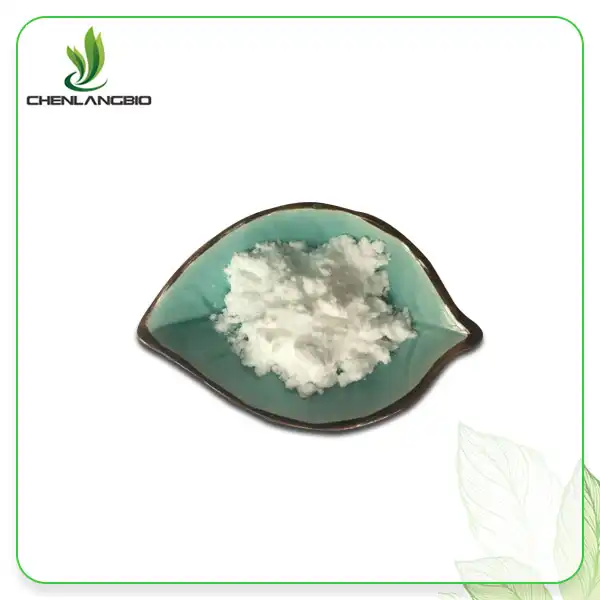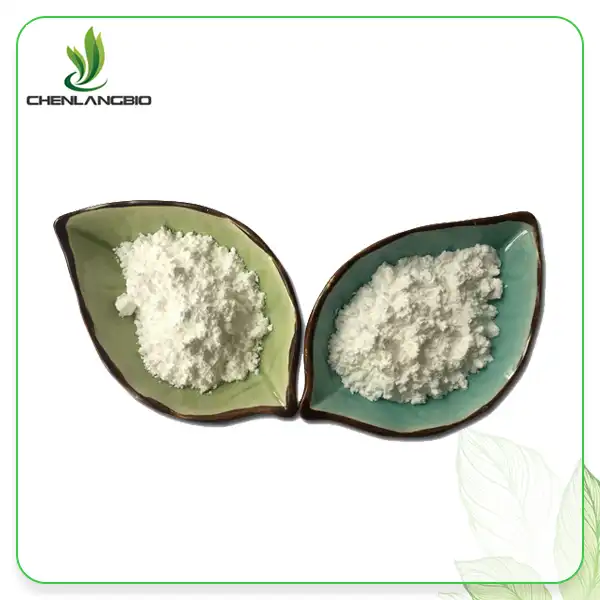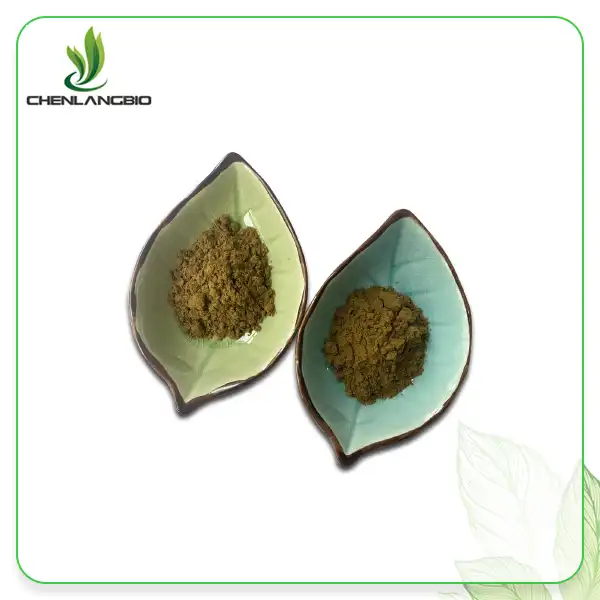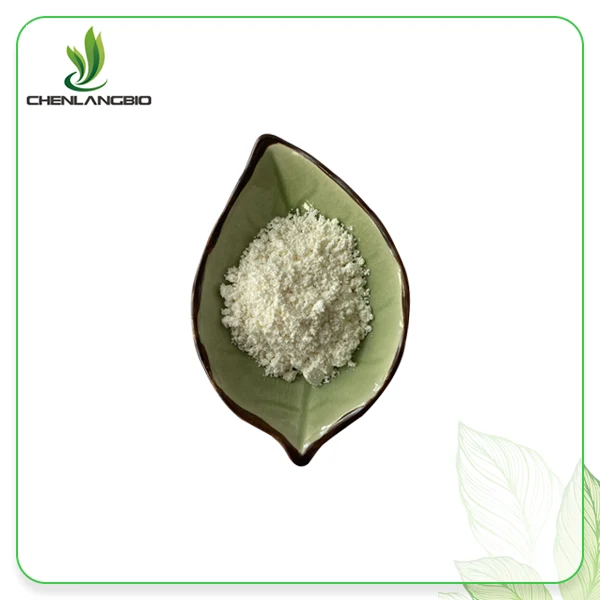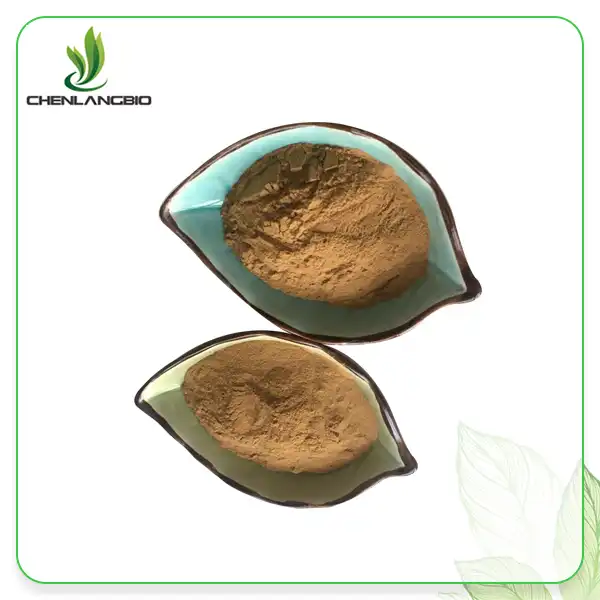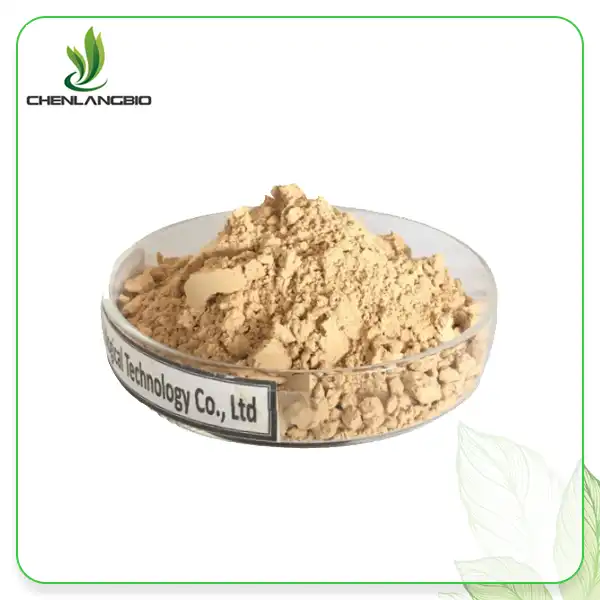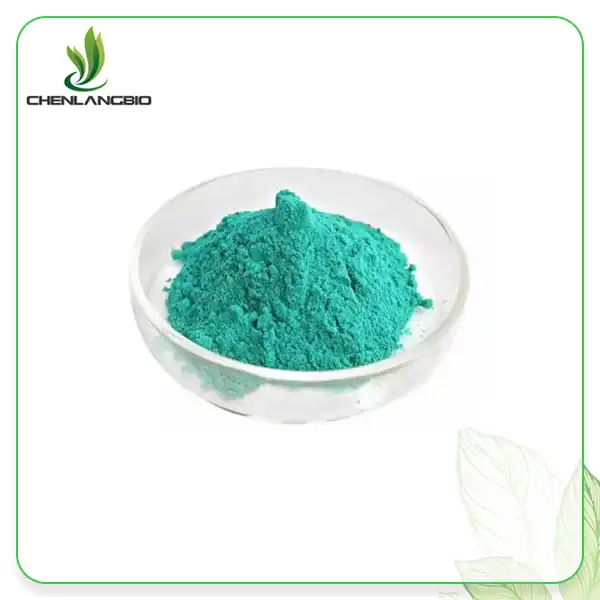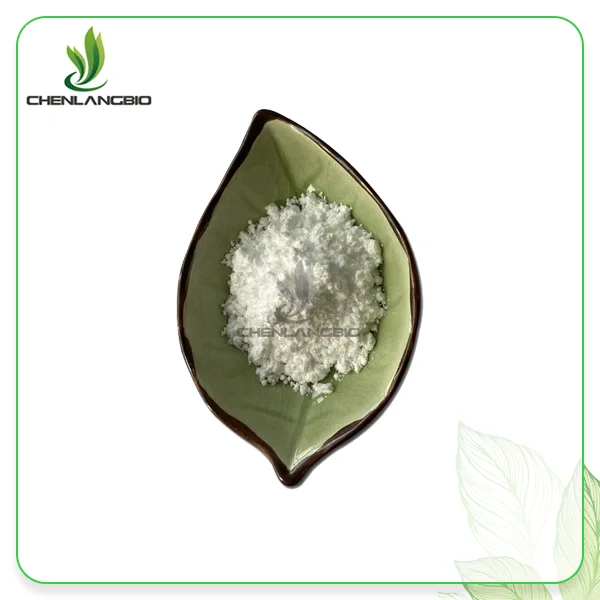How Does β-NMN Rrelate to NAD+ and Aging?
2025-04-08 09:39:37
In the realm of anti-aging research, few compounds have generated as much scientific interest as β-Nicotinamide Mononucleotide (NMN). This naturally occurring molecule serves as a direct precursor to Nicotinamide Adenine Dinucleotide (NAD+), a crucial coenzyme found in all living cells. The relationship between β-Nicotinamide Mononucleotide and NAD+ represents one of the most promising avenues in understanding and potentially mitigating age-related decline. As NAD+ levels naturally decrease with age, supplementing with NMN has emerged as a strategic approach to restore cellular energy production, enhance metabolic functions, and potentially slow various aspects of the aging process. This intricate biochemical relationship forms the foundation of current anti-aging interventions aimed at extending not just lifespan, but healthspan—the period of life spent in good health.
The Biochemical Pathway: From NMN to NAD+
The Molecular Structure and Properties of β-NMN
β-Nicotinamide Mononucleotide is a nucleotide derived from ribose and nicotinamide, with a molecular weight of 334.22 and the chemical formula C11H15N2O8P. This white crystalline powder acts as an intermediate compound in the biosynthesis of NAD+, making it a critical component in cellular energy metabolism. The unique molecular structure of β-Nicotinamide Mononucleotide allows it to function effectively as a precursor molecule that can be readily converted to NAD+ inside cells. This conversion is particularly significant because while NAD+ itself cannot easily cross cell membranes due to its size and charge, NMN can enter cells through recently discovered specialized transport proteins. These transporters become more abundant when cellular NAD+ levels decline, suggesting an adaptive mechanism designed to maintain adequate levels of this vital coenzyme. The biochemical pathway from β-Nicotinamide Mononucleotide to NAD+ involves enzymatic reactions that are tightly regulated, ensuring that cellular energy production remains efficient even as other physiological processes change with age.
Conversion Mechanisms and Cellular Uptake
The transformation of β-Nicotinamide Mononucleotide into NAD+ follows distinct pathways depending on cell type and metabolic conditions. Current research indicates that for certain cells, β-Nicotinamide Mononucleotide must first be converted to nicotinamide riboside (NR) before cellular entry, while other cells can directly transport NMN through specialized membrane proteins. These transport mechanisms become increasingly important as we age because NAD+ levels naturally decline over time, triggering an upregulation of these transport proteins as a compensatory response. This suggests that β-Nicotinamide Mononucleotide supplementation may be one of the most efficient methods to boost NAD+ production. The conversion process itself is facilitated by enzymes known as nicotinamide mononucleotide adenylyltransferases (NMNATs), which catalyze the final step in NAD+ biosynthesis. The efficiency of this conversion process is crucial for maintaining cellular energy production, as NAD+ serves as a key coenzyme in numerous metabolic reactions, including those involved in the production of adenosine triphosphate (ATP), the primary energy currency of cells. By supporting this conversion process, β-Nicotinamide Mononucleotide supplementation may help preserve cellular energy metabolism even as other aspects of cellular function decline with age.
NAD+ as a Critical Coenzyme in Cellular Metabolism
NAD+ stands at the crossroads of cellular metabolism, serving as an essential coenzyme in hundreds of biochemical reactions. Its primary role involves electron transfer in metabolic processes, particularly in the conversion of nutrients into cellular energy. As we age, NAD+ levels gradually decline, compromising cellular energy production and contributing to various aspects of aging. β-Nicotinamide Mononucleotide supplementation aims to address this decline by providing the raw material needed for NAD+ synthesis. Beyond its role in energy metabolism, NAD+ also serves as a substrate for enzymes involved in DNA repair, gene expression regulation, and cellular stress responses. The sirtuins, a family of proteins known for their roles in longevity and stress resistance, require NAD+ as a cofactor to function properly. When NAD+ levels decrease with age, sirtuin activity diminishes, potentially accelerating the aging process. By restoring NAD+ levels through β-Nicotinamide Mononucleotide supplementation, it may be possible to enhance sirtuin activity and potentially slow aspects of aging. This metabolic relationship between β-Nicotinamide Mononucleotide, NAD+, and sirtuins forms the biochemical basis for current anti-aging strategies focused on NAD+ precursor supplementation.
Anti-Aging Effects of NMN Supplementation
Cellular Rejuvenation and DNA Repair
The aging process is characterized by accumulated cellular damage, with DNA damage being particularly detrimental. β-Nicotinamide Mononucleotide has emerged as a promising compound for supporting cellular rejuvenation through enhanced DNA repair mechanisms. When cells experience DNA damage, they require significant energy to initiate and complete repair processes. NAD+, derived from β-Nicotinamide Mononucleotide, serves as a critical substrate for enzymes involved in DNA repair, particularly poly(ADP-ribose) polymerases (PARPs). These enzymes consume substantial amounts of NAD+ when repairing DNA breaks, potentially depleting cellular NAD+ reserves. By supplementing with β-Nicotinamide Mononucleotide, cells can maintain adequate NAD+ levels to support these repair processes even under conditions of stress or advanced age. Research has shown that aged cells with restored NAD+ levels demonstrate improved capacity for DNA repair, potentially reducing the accumulation of mutations and genomic instability that typically occur with aging. This enhanced DNA repair capability may contribute to overall cellular resilience and function, potentially slowing various aspects of age-related decline. The ability of β-Nicotinamide Mononucleotide to support DNA repair represents one of the key mechanisms through which this compound may exert its anti-aging effects.
Metabolic Enhancement and Energy Production
The relationship between β-Nicotinamide Mononucleotide and energy metabolism forms a cornerstone of its potential anti-aging benefits. As we age, mitochondrial function typically declines, leading to reduced energy production and increased production of harmful reactive oxygen species. β-Nicotinamide Mononucleotide supplementation has been shown to improve mitochondrial function by increasing NAD+ levels, which are essential for the activity of enzymes involved in the electron transport chain and ATP production. Studies have demonstrated that NMN can improve symptoms of diabetes by enhancing insulin sensitivity and glucose tolerance, likely through improved mitochondrial function in metabolically active tissues. This metabolic enhancement extends beyond glucose metabolism to include improvements in lipid metabolism, potentially reducing age-related weight gain and supporting overall metabolic health. The high purity β-Nicotinamide Mononucleotide (99%) produced by CHEN LANG BIO through natural fermentation processes ensures maximum bioavailability and efficacy for these metabolic benefits. By supporting cellular energy production, β-Nicotinamide Mononucleotide not only addresses the energy deficit commonly observed in aging but also helps maintain the proper function of energy-demanding processes throughout the body. This comprehensive metabolic support may contribute to the overall anti-aging effects associated with NMN supplementation.
Longevity and Healthspan Extension
The concept of extending not just lifespan but healthspan—the period of life spent in good health—represents a primary goal in anti-aging research. β-Nicotinamide Mononucleotide has shown promise in potentially extending both metrics through its effects on fundamental cellular processes. By supporting NAD+ levels, NMN activates sirtuins, a family of proteins associated with longevity in multiple organisms. These enzymes regulate various cellular processes, including gene expression, metabolism, and stress responses, all of which influence aging trajectories. Research suggests that β-Nicotinamide Mononucleotide supplementation may help prevent age-related vision problems, particularly macular degeneration, by protecting retinal cells from oxidative damage. The compound easily crosses the blood-brain barrier, making it effective for supporting central nervous system health and potentially addressing neurodegenerative conditions like Parkinson's and Alzheimer's disease. Additionally, NMN has demonstrated benefits for cardiovascular health by improving vascular elasticity and preventing atherosclerosis, potentially helping to maintain healthy blood pressure levels with age. The 100% natural fermentation process used by CHEN LANG BIO to produce their high-purity β-Nicotinamide Mononucleotide ensures that the supplement closely mimics the naturally occurring molecule found in the body, potentially enhancing its effectiveness for supporting longevity and healthspan.
Physiological Impact of NMN on Age-Related Conditions
Cardiovascular Benefits and Vascular Health
The aging cardiovascular system faces numerous challenges, including reduced vascular elasticity, increased blood pressure, and elevated risk of atherosclerosis. β-Nicotinamide Mononucleotide has demonstrated significant potential in addressing these age-related cardiovascular changes. By increasing NAD+ levels, NMN supports the function of sirtuins, particularly SIRT1, which plays a crucial role in maintaining vascular health. This enhanced sirtuin activity helps restore normal endothelial function, improving blood vessel dilation and contraction in response to physiological demands. Research has shown that β-Nicotinamide Mononucleotide can inhibit and potentially reverse atherosclerosis by allowing foam cells to gradually transform back into vascular smooth muscle cells, thereby restoring vascular elasticity. This process, coupled with the anti-inflammatory effects of NMN, prevents the formation of blood clots and opens blocked collateral circulation, effectively lowering blood pressure over time. The molecular weight and high purity (99%) of CHEN LANG BIO's β-Nicotinamide Mononucleotide (CAS: 1094-61-7) ensure optimal bioavailability for cardiovascular tissues. By supporting vascular health at the cellular level, NMN supplementation represents a promising approach for maintaining cardiovascular function with age, potentially reducing the risk of heart disease and stroke that typically increase in prevalence among older populations.
Neurological Function and Cognitive Protection
The brain's complex network of neurons requires substantial energy to maintain proper function, making it particularly vulnerable to age-related declines in NAD+ levels. β-Nicotinamide Mononucleotide has shown promising neuroprotective properties, primarily through its ability to cross the blood-brain barrier and enhance mitochondrial function in neural tissues. The human brain contains abundant unsaturated fatty acids, making it susceptible to oxidative damage from free radicals. β-Nicotinamide Mononucleotide acts as a powerful antioxidant in neural tissues, preventing retinal oxidation and protecting the central nervous system from damage. Research indicates that NMN supplementation may help address neurodegenerative conditions like Parkinson's disease and Alzheimer's disease by supporting cellular energy production and reducing neuroinflammation. Beyond these protective effects, β-Nicotinamide Mononucleotide also appears to support cognitive function by regulating the biological clock, which controls various aspects of brain activity and cognition. This regulation helps maintain normal circadian rhythms, potentially improving sleep quality and cognitive performance in aging individuals. The high-quality β-Nicotinamide Mononucleotide produced by CHEN LANG BIO, with its molecular formula C11H15N2O8P and EINECS number 214-136-5, provides a pure and effective supplement for supporting neurological health. By addressing multiple aspects of neural function, from energy production to protection against oxidative stress, NMN offers comprehensive support for brain health during aging.
Metabolic Regulation and Diabetes Prevention
Age-related metabolic disorders, particularly type 2 diabetes, represent significant health challenges associated with advancing age. β-Nicotinamide Mononucleotide has demonstrated remarkable effects on glucose metabolism and insulin sensitivity, positioning it as a potential adjunct therapy for age-related metabolic dysfunction. As a direct precursor to NAD+, NMN enhances the activity of sirtuins, particularly SIRT1, which plays a critical role in regulating glucose metabolism and insulin signaling. Research has shown that β-Nicotinamide Mononucleotide supplementation improves glucose tolerance and insulin sensitivity in age-induced diabetic models by enhancing mitochondrial function in metabolically active tissues like muscle, liver, and adipose tissue. Beyond these direct effects on glucose metabolism, NMN has also been shown to help reduce age-related weight gain by supporting proper metabolic regulation and energy expenditure. The high-purity β-Nicotinamide Mononucleotide (99%+) supplied by CHEN LANG BIO ensures maximum efficacy for these metabolic benefits. The company's advanced production equipment, including dynamic countercurrent extraction, column separation technology, and spray drying technology, produces NMN powder with stable quality and complete specifications. By supporting metabolic health at the cellular level, β-Nicotinamide Mononucleotide supplementation may help prevent or mitigate the development of age-related metabolic disorders, potentially reducing the burden of these conditions on aging populations and healthcare systems.
Conclusion
The relationship between β-Nicotinamide Mononucleotide, NAD+, and aging represents a promising frontier in anti-aging research. By serving as a direct precursor to NAD+, NMN supplementation offers a strategic approach to address age-related NAD+ decline, potentially enhancing cellular energy production, DNA repair, and metabolic function across multiple organ systems.
Ready to experience the benefits of premium β-Nicotinamide Mononucleotide for yourself? CHEN LANG BIO stands at the forefront of NMN production with ISO-certified manufacturing, cutting-edge extraction technologies, and rigorous quality control. Our dedicated R&D team continuously innovates to provide you with the highest quality supplements for healthy aging. With a production capacity of 600 tons annually and comprehensive certifications including ISO 9001-2015, ISO 22000, and HALAL, we guarantee product excellence that meets global standards. Contact us today at admin@chenlangbio.com to learn how our premium NMN can support your health and longevity goals.
References
1. Mills KF, Yoshida S, Stein LR, et al. Long-Term Administration of Nicotinamide Mononucleotide Mitigates Age-Associated Physiological Decline in Mice. Cell Metabolism. 2016;24(6):795-806.
2. Yoshino J, Baur JA, Imai SI. NAD+ Intermediates: The Biology and Therapeutic Potential of NMN and NR. Cell Metabolism. 2018;27(3):513-528.
3. Rajman L, Chwalek K, Sinclair DA. Therapeutic Potential of NAD-Boosting Molecules: The In Vivo Evidence. Cell Metabolism. 2018;27(3):529-547.
4. Zhang H, Ryu D, Wu Y, et al. NAD+ repletion improves mitochondrial and stem cell function and enhances life span in mice. Science. 2016;352(6292):1436-1443.
5. Gomes AP, Price NL, Ling AJ, et al. Declining NAD+ induces a pseudohypoxic state disrupting nuclear-mitochondrial communication during aging. Cell. 2013;155(7):1624-1638.
6. Hou Y, Lautrup S, Cordonnier S, et al. NAD+ supplementation normalizes key Alzheimer's features and DNA damage responses in a new AD mouse model with introduced DNA repair deficiency. Proceedings of the National Academy of Sciences. 2018;115(8):E1876-E1885.
Send Inquiry
Related Industry Knowledge
- How Much Coenzyme Q10 Powder Should I Take Daily
- Can Acetyl Hexapeptide-8 be Used with Other Anti-aging Ingredients?
- Health Benefits of Pelargonium Sidoides Extract
- Soapnut Extract Powder: Benefits and Uses
- Is Pyrrolidinyl Diaminopyrimidine Oxide Safe to Use?
- Top Benefits of Pro-Xylane Powder for Skincare
- Bulk Dimethylmethoxy Chromanol for Cosmetic Formulations
- How Does Loratadine Affect the Brain
- Can Coenzyme Q10 Powder Improve Skin Health
- When Is The Best Time To Take Resveratrol?



